In today’s world, keeping business records safe is more important than ever. With so much sensitive information being shared and stored digitally, businesses face many risks, including data breaches and loss of trust. This article will explore key strategies to help you protect your valuable data and maintain your business’s reputation.
Key Takeaways
- Always use strong passwords and enable multi-factor authentication to secure your accounts.
- Regularly train employees on data security practices to help prevent accidental breaches.
- Organize both physical and digital records carefully, and ensure sensitive documents are securely disposed of.
Understanding the Importance of Data Security
Why Data Security Matters for Your Business
Hey there! Let’s chat about why data security is a big deal for your business. Imagine your sensitive info—like customer details and financial records—getting into the wrong hands. That’s a nightmare! Protecting this data isn’t just smart; it’s essential for keeping your business running smoothly.
The Risks of Neglecting Data Security
Neglecting data security can lead to some serious consequences. Here’s a quick list of what could happen:
- Financial loss: Data breaches can cost you a fortune.
- Legal trouble: You might face lawsuits or fines.
- Reputation damage: Customers may lose trust in you.
How Data Breaches Can Impact Your Reputation
When a data breach happens, it’s not just about the money. Your reputation takes a hit too. Customers want to know their info is safe. If they hear about a breach, they might think twice before doing business with you. Protecting your data is protecting your brand!
Remember, a solid data security plan is like a good umbrella on a rainy day. It keeps you dry when things get messy!
Implementing Robust Cybersecurity Measures

Investing in Security Software
Alright, let’s kick things off with the basics: you need good security software. Think of it as the bouncer at your club, keeping the riff-raff out. Here’s what you should look for:
- Antivirus and anti-malware programs
- Firewalls to block unwanted traffic
- Regular updates to keep up with new threats
Regularly Updating Your Systems
Keeping your systems updated is like changing the locks on your doors. You wouldn’t want to leave the old ones on, right? Here’s a quick checklist:
- Set reminders for software updates.
- Enable automatic updates where possible.
- Regularly check for updates on all devices.
Using Strong Passwords and Multi-Factor Authentication
Let’s talk passwords. A strong password is your first line of defense. Make it long, complex, and unique. And don’t forget about multi-factor authentication (MFA) — it’s like having a second lock on your door. Here’s how to create a strong password:
- Use at least 12 characters.
- Mix upper and lower case letters, numbers, and symbols.
- Change it regularly and don’t reuse old ones.
Remember, a little effort in securing your data can save you from a lot of headaches later on.
Summary
Implementing these cybersecurity measures is crucial for protecting your sensitive information. By investing in the right software, keeping your systems updated, and using strong passwords with MFA, you can significantly reduce your risk of a data breach. Don’t wait until it’s too late!
Best Practices for Physical and Digital Record Keeping

Organizing Your Physical Records
Keeping your physical records organized is like keeping your sock drawer tidy—nobody wants to dig through a mess! Here are some tips to help you out:
- Label everything: Use clear labels so you can find what you need without a treasure map.
- Use a filing system: Whether it’s alphabetical, chronological, or by project, find a system that works for you and stick to it.
- Regularly purge: Toss out what you don’t need. Think of it as spring cleaning for your office!
Utilizing Cloud Storage Solutions
In the digital age, cloud storage is your best friend. Here’s why:
- Accessibility: Access your files from anywhere—no more hunting for that USB drive!
- Backup: Cloud services often have automatic backups, so you won’t lose your precious data.
- Collaboration: Share files easily with your team, making teamwork a breeze.
| Cloud Storage Options | Pros | Cons |
|---|---|---|
| Google Drive | Free up to 15GB | Limited storage for free users |
| Dropbox | Easy to use | Can get pricey for more space |
| Microsoft OneDrive | Integrates with Office | Requires a Microsoft account |
Ensuring Secure Document Disposal
When it’s time to say goodbye to documents, do it right:
- Shred sensitive papers: Don’t just toss them in the trash; shred them to keep your info safe.
- Use secure deletion software: For digital files, make sure they’re gone for good, not just hidden away.
- Follow a disposal schedule: Regularly review and dispose of documents you no longer need.
Remember, keeping your records secure isn’t just about storage; it’s about knowing when to let go. Organizing, utilizing, and disposing of records properly can save you from future headaches!
By following these best practices, you’ll keep your business records secure and your mind at ease. After all, nobody wants to be the one who loses important info because of a messy desk or a forgotten file!
Employee Training and Awareness
Conducting Regular Security Training
You know what they say: knowledge is power! Regular security training is like a superhero cape for your employees. It helps them recognize threats like phishing scams and malware. Make sure everyone in your team gets this training at least once a year. It’s not just about checking a box; it’s about empowering your team to be the first line of defense against cyber threats.
Creating a Culture of Security
Creating a culture of security is like making a delicious cake; it requires the right ingredients! Here’s how to whip it up:
- Encourage open discussions about security issues.
- Reward employees who spot potential threats.
- Share success stories of how security training helped prevent a breach.
Monitoring and Managing Insider Threats
Insider threats can be sneaky, like a cat burglar in the night. To keep your sensitive data safe, consider these steps:
- Regularly review access permissions to ensure only the right people have access to sensitive information.
- Implement monitoring tools to detect unusual activities.
- Encourage employees to report suspicious behavior without fear of repercussions.
Remember, protecting sensitive data is a team effort! Everyone plays a role in keeping your business secure.
By investing in training and fostering a security-first mindset, you can turn your employees into your best defense against data breaches. After all, 100 percent of department employees and contractors receive annual information security awareness training and role-based training.
Wrapping It Up: Keep Your Business Data Safe!
So there you have it! Keeping your business records safe doesn’t have to feel like rocket science. With a few smart moves, like using strong passwords, keeping your software updated, and being open with your team about data practices, you can protect your sensitive info like a pro. Remember, it’s all about being proactive, not reactive. Think of it like wearing a seatbelt; it’s a simple step that can save you from a lot of trouble down the road. Now go forth and secure those records! Your future self will thank you.
Frequently Asked Questions
Why is it important to keep business records secure?
Keeping business records safe is crucial because it protects sensitive information from theft or loss. If data is not secure, it can lead to financial problems and damage a company’s reputation.
What are some basic ways to secure my business data?
Some simple ways to protect your data include using strong passwords, regularly updating software, and investing in security tools. It’s also important to train employees on security practices.
How can I ensure my employees understand data security?
You can help your employees understand data security by providing regular training sessions, sharing information about potential threats, and creating a culture that values security.







